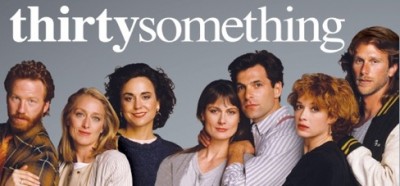Notes from north of 49ºN, but at 37.9ºN at the moment.
Regular readers of ThickCulture will recall that I post quite a bit on the topic of Canada from an American expatriate perspective. Way back in May, I blogged about attack ads being aimed at Liberal opposition leader, Michael Ignatieff, framing him as an outsider. Recently, the Liberal Party of Canada has announced their intent to trigger the next election with a no-confidence vote in Parliament. In preparation of this, The Liberals started advertising with spots featuring Ignatieff in a forest. Earlier last week, the Globe & Mail tried to stir up controversy about Liberal Party of Canada ads featuring Michael Ignatieff in a possibly ersatz forest or a forest that cannot be readily identified. Quite the sin in a timber-bearing land, eh Globe & Mail?
Here are the ads:: “Worldview” & “Jobs”
In my opinion, this constructed “scandal” is meant to stir the pot to get pageviews for the Globe & Mail by feeding the sentiments that somehow he is not as Canadian as everyone else and there is something less-than-authentic about him. Perhaps this was borne out of the media frenzy over the Obama “birthers” movement.
Interestingly, in the French ads {I didn’t have time to translate the copy}, there is no forest and no guitar strumming in the background. Just straightforward delivery::
Strategically, candidates need to think about creating a “positioning” strategy, where they create a meaning system in light of the competition. With voter data on attitudes towards the political leaders {Harper-Conservative, Ignatieff-Liberal, Layton-NDP, Duceppe-Bloc, & May-Green}, multidimensional scaling can be used to try to create dimensions based on the attitudes and positions for each of the candidates along the dimensions. Ideally, candidates differentiate themselves from the others on the basis of salient voter perceptions, i.e., tapping into the zeitgeist. On my other blog, Rhizomicon, I did a post that talked about the increased fragmentation of the Canadian electorate. While the Conservatives are in power with a plurality, my take is that there are several oppositional positions that are distinct and are differentiated from each other. The question is whether the positions are salient and resonate with voters, which I think is a tough thing to accomplish in Canada these days.
The key issues now are economic, despite the Bank of Canada announcing the economy is turning the corner. Crafting powerful messages that resonate on this would be no easy feat for any of the parties. I think the look and feel of the Liberal Party French ad is more effective in conveying an “ominous” message. As for the attack ads on Ignatieff, this could be dangerous in a politically fragmented environment, as there are already political faultlines along east-west lines. A strategy framing Harper as fostering policies that are out of touch outside of the West could erode Conservative support. Ironically, Harper coined the term “Bloc Anglais” to characterize Jack Layton of the NDP, but that same term could be applied to the particular {Reform Party style} conservatism Alberta and parts of interior BC.
So, what’s next? Maybe Ignatieff’s a robot from outer space…
Twitterversion:: Globe&Mail strts contrvrsy w/ #Ignatieff in forest ads,but how2frame #CanPoli parties givn fragmntd polity? #ThickCulture http://url.ie/2gxo @Prof_K
Song:: Yoshimi Battles The Pink Robots Pt.1 – The Flaming Lips








